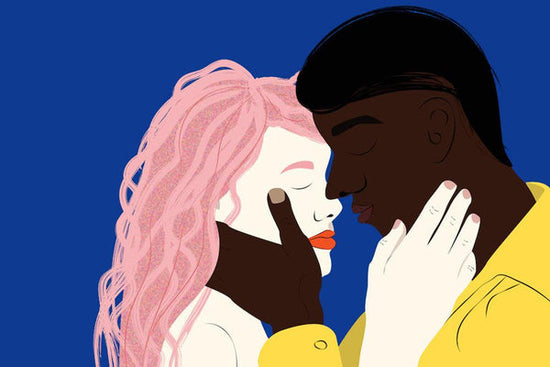
Gaslighting and bipolar disorder have more in common than you think
Many people with bipolar disorder experience gaslighting—having their emotions and reality dismissed. This form of psychological abuse can intensify symptoms and lead to self-doubt. In this article, we explore the overlap between gaslighting and bipolar disorder, how it affects relationships, and ways to cope.
Gaslighting in Bipolar Relationships: People with bipolar disorder often experience gaslighting , where their emotions and reality are dismissed, leading to self-doubt and worsening symptoms. This psychological abuse can occur in personal relationships , workplaces, and even in medical settings.
The Toxic Overlap of Gaslighting & Mental Illness: Gaslighting and bipolar disorder share a harmful connection—manipulative individuals may use bipolar symptoms to invalidate feelings , blame mood swings, or deny abusive behavior, making it harder for individuals to trust their own perceptions.
Coping with Gaslighting & Protecting Mental Health: Recognizing gaslighting in bipolar relationships is essential for setting boundaries. Seeking therapy , building a support system , and educating oneself about psychological abuse in bipolar disorder can help in breaking free from manipulation.
Table of Contents: Gaslighting & Bipolar Disorder – Key Insights
Gaslighting someone with mental illness: a true story
People who suffer from mental illness – such as bipolar disorder – so often have their diagnosis dismissed because they don’t fit into what Susan from accounting saw on TV last Thursday.
Until last year, my own mother didn’t believe my diagnosis. This is why gaslighting and bipolar disorder are frequent companions.
“You don’t behave anything like [insert name of a person she knows who suffers from bipolar]. You don’t seem bipolar. I think it’s just anxiety.”
Really, mum? Are you gaslighting my bipolar disorder?
All those nights I spent writing furiously until sunrise? All those times I went partying until 5 am? All those times I got so depressed that I refused to get out of bed?
All those moments of hysterical energy and all those moments where I couldn’t muster up the energy to move? All she saw were the anxiety attacks and the constant look of fear in my eyes.
"Gaslighting and bipolar disorder have more in common than you think."
Why is gaslighting bipolar disorder so common?
I don’t blame her for gaslighting bipolar disorder. I don't blame people for gaslighting mental illness.
Society has unfortunately conditioned us to associate bipolar disorder with different kinds of stereotypical behaviors and patterns. This has given rise so much stigma about having a mental illness.
Because I could function a certain way, obtain a degree and advance in my career, I didn’t fit into this idea of bipolar my mother had gained from interacting with one other person with the same condition or from watching Claire Danes in Homeland. But the truth is that all bipolar disorder issues lie on a spectrum. We may have the same diagnosis, but our brains react differently.
What goes on inside a person’s head isn’t always visible from the outside. Hell, if it were, I probably wouldn’t be invited to meetings anymore. Or family lunches. Or weddings. And no one would ever show me pictures of their newborn again (it’s ugly, just like the rest of them, Susan).
Gaslighting bipolar at work: some real life examples
One day, last year, I came into work with a smile on my face. I joined in the chorus of “Thank fuck it’s Friday” and cheerfully asked people about their plans for the weekend. I chatted away to my colleagues, caught up on what I’d missed while I was on leave, scratched off every item on my to-do list and there was even a slight spring in my step as I left the office for the day. And then I went home, drank a bottle of wine, and swallowed two giant handfuls of medication meant to treat my anxiety disorder.
No one could have known what I’d been thinking about all day. I wasn’t wearing my sadness on my face. My voice didn’t sound like I’d forgotten what it felt like to have hope. I didn’t look like I just wanted the world around me to disappear, or that I just didn’t want to exist. Hell, it took multiple therapy sessions just to get me to admit to myself I actually wanted to die that night. For quite a while I truly believed that I just wanted to pass out and feel nothing for the weekend.
Gaslighting bipolar disorder: don’t dismiss what you can’t see
All this is not to say that there have not been times when I have visibly been upset. I’ve cried uncontrollably in public, had panic attacks at social events, gone days without sleeping because I was certain I didn’t need it, submitted work ahead of a deadline at 3 am on a Sunday… I’ve displayed these behaviors, just not to the extent and frequency where it is obvious to the casual observer that sometimes the chemicals in my brain lie so well I believe them.
So, if someone ever tells you that they have bipolar disorder and this comes as a shock to you, don’t dismiss it because you can’t see it. And please don’t ever say “you don’t look bipolar.” This is gaslighting bipolar disorder.
Gaslighting someone with mental illness, or for any other matter, isn't cool.
If you have been diagnosed with bipolar disorder by a doctor you trust, don’t let other people dismiss what you’re going through, just because it doesn’t make sense to them. I don’t.












